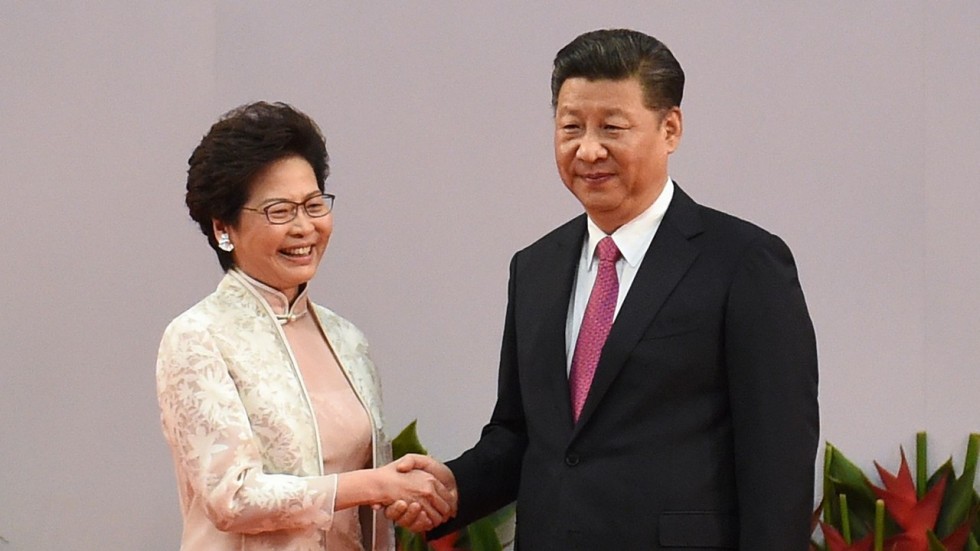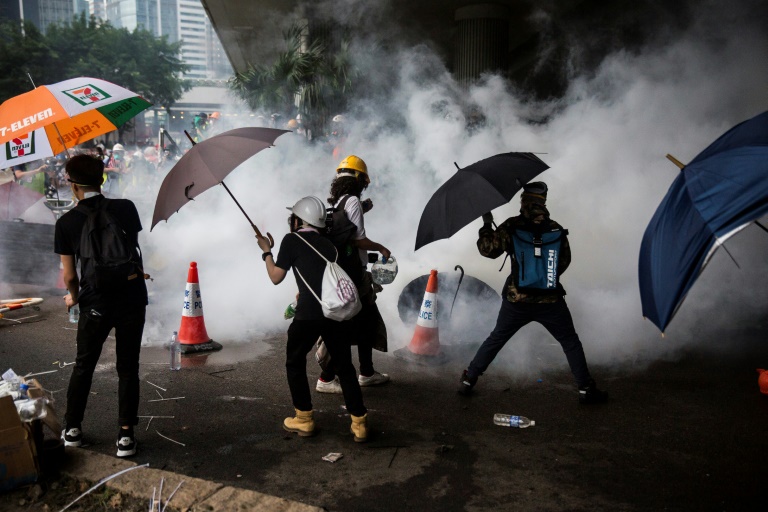Though the temporary shutdown of Hong Kong’s airport was a first, protests are nothing new for the financial hub. In the last decade, the semi-autonomous Chinese city has been frequently rocked by demonstrations over trade and political freedoms. But while protests gradually led to democratization in neighboring Taiwan, demonstrations have not moved Hong Kong’s chances for democracy forward.
Twenty-five years ago, Hong Kong was more democratic than Taiwan, but today, Hong Kong looks at Taiwan for inspiration. In spite of increasing cooperation between Taiwan and Hong Kong, the latter faces an almost impossible battle to reform.
As Hong Kong pushes for democracy, it confronts a completely different external environment than Taiwan did when it democratized in 2000.
Taiwan’s Democratization
Hong Kong and Taiwan are both part of the two-systems policy, but Hong Kong’s leaders are more pliant to Beijing. Taiwan’s leadership, the Republic of China, initially saw itself as the legitimate regime of China when Chiang Kai-shek’s Kuomingtang (KMT) fled mainland China and took over the island of Taiwan in 1949.
The KMT faced growing external pressure to democratize after the United States did an about-face in 1979 and no longer recognized the Republic of China as China’s legitimate regime and recognized the People’s Republic of China instead.
As a result, there were concerns that the U.S. would drop its foreign aid to Taiwan, which in the 1950s constituted roughly 9 percent of the island’s GDP. As more countries followed suit and refused to recognize the Republic of China, Taiwan became more diplomatically isolated.
Taiwan’s leadership viewed democratizing as a way of gaining legitimacy.
Hong Kong’s Circumstances
In direct contrast, the only external pressure Hong Kong faces is from China is to sustain the status quo. Hong Kong remains in a precarious position as part of the one-China, two systems plan, but its leadership is not suffering from international isolation. While the U.N. rights chief has urged Hong Kong’s government to exercise restraint, the rest of the world has not weighed in.
China has also treated the protests for democratic reform in Hong Kong and Taiwan very differently. When Taiwan democratized, the Cold War had ended, and China was focused on retaining strong trading relationships with the West and fostering economic growth. While Taiwan was not allowed to declare itself independent, Beijing gave Taiwan more leeway to engage in democratic reform.
As Xi Jinping’s leadership has tightened its grip on Hong Kong, Xi has continued to warn the city not to cross any red lines. Beijing has deemed any attempt at liberalization in Hong Kong completely unacceptable.
China’s Role
Today China has also become more assertive in spreading autocratic norms and using technology to spread pro-Beijing narratives and undermine the opposition.
China has been more effective in dividing and conquering the pro-democracy camp, which is incredibly fragmented. By sowing divisions, China has been able to prevent the opposition from effectively challenging the status quo.
The Chinese government is also using social media to push fake news stories, spreading the rumor that foreign agents are behind the protests in Hong Kong. China has gone so far as to warn that the protests resemble terrorism, claiming that the protesters have become increasingly dangerous.
Protesters have been on the streets for more than two months now, facing off against police, tear gas, rubber bullets, and pepper spray nearly every week. Here are some of the items they bring and wear to stay safe: https://t.co/qt14Jv996n pic.twitter.com/zM31DdhFHn
— CNN (@CNN) August 18, 2019
Most recently, after the protests at the airport turned violent, China has controlled the narrative on the mainland that people need to support the Hong Kong police. As a result, Chinese citizens are increasingly calling for the government to use force if necessary.
Though China would prefer not to utilize the People’s Liberation Army, the regime will be willing to use its army, paramilitaries, or local gangs to stop the protests. And China is unlikely to face international opposition if it uses force.
China’s Increasing Power over Hong Kong
In the past several years, Hong Kong has seen major setbacks for any chance for democracy as China has stripped Hong Kongers of many of its political freedoms. Hong Kong saw its first political prisoners sentenced (one to a to maximum security prison) in 2017 for protesting during the Umbrella Revolution. Three student leaders were first told to complete community service but were called back by the government a year later and given actual prison sentences. This was seen as a clear challenge to Hong Kong’s judicial independence.
In September of 2017, in the wake of increasing boos of the Chinese National Anthem during sporting events in Hong Kong, the Chinese government passed a law to harshly punish anyone who disrespects the national anthem.

While electoral reforms in Taiwan led to enhancing universal suffrage and electoral fairness, efforts at electoral reform in Hong Kong have actually resulted in electoral authoritarization instead. The 2017 election for chief executive saw a candidate, Carrie Lam, losing in all but one of the polls, but beating her pro-democracy opponent John Tsang in a decisive victory. Only 0.03 percent of the registered voters can vote in the chief executive elections.
Public Discontent with China
Growing authoritarianism in Hong Kong has likely affected the public perception of China. Case in point, public opinion is at an all-time low in support of China. Only 27 percent of those interviewed by the University of Hong Kong last month said they felt proud about becoming a Chinese citizen. Only 10 percent of youth felt proud.
Based on China’s reactions to recent events, Hong Kongers have reason to be concerned about what the future holds for when the 50-year promise to maintain one country, two systems runs out in 2047.
Disclaimer: The views and opinions expressed here are those of the author and do not necessarily reflect the editorial position of The Globe Post.




















